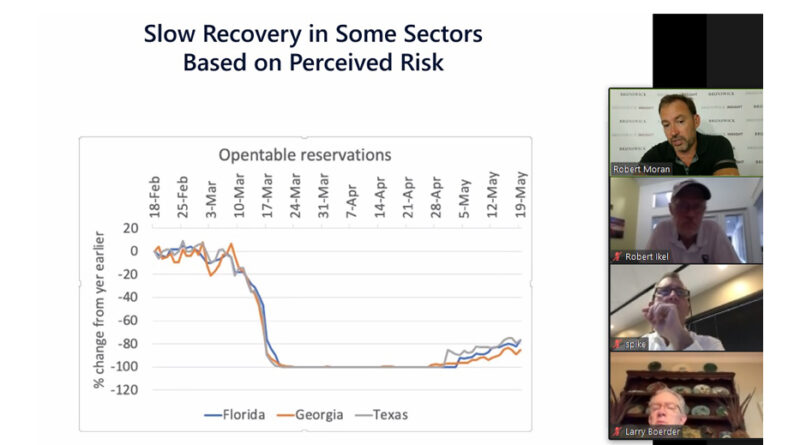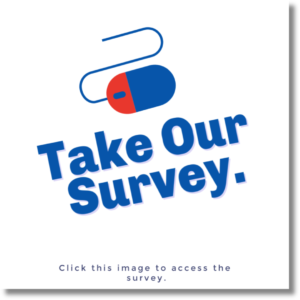Strategist: Economy Will Come with Ups and Downs
Sorry, optimists. Business strategist Robert Moran doesn’t anticipate a smooth V-shaped rebound after the pandemic shuttered the economy this spring.
“We are more likely to see a spotty, W-shaped recovery, not because states won’t try to bring their economies back, but because we will have disruptions that occur over time,” he said.
He met with the Preston Center Rotary Club via Zoom on May 27, two days after the death of George Floyd in Minnesota, but before Black Lives Matter demonstrations – sometimes accompanied by vandalism and looting; tear gas and rubber bullets – spread across the country.
Disruption from the protesting often extended beyond downtowns to places like Dallas’ Deep Ellum. In the Park Cities and Preston Hollow, Highland Park Village and NorthPark Center voluntarily shuttered after social media chatter suggested trouble might head their way. It didn’t.
Moran leads Brunswick Insight, a global public opinion, market research, and analytics company with research teams in New York, London, Washington, Dubai, Beijing, Hong Kong, San Francisco, Munich, and Dallas, according to brunswickgroup.com.
He contributes to the Huffington Post, has appeared on Fox Business News, BBC, and CGTN, and is friends with Rotarian Grant Wood of Dallas. The two men belong to the Knights of Babylon, a Mardi Gras krewe in New Orleans, and participated in a parade there before most public gatherings were canceled.
“If people don’t feel safe at work, or they don’t feel safe buying your product, you are nowhere.”
Robert Moran, business strategist
Based on history, he expects the recovery process to include stages, as people address safety and economic resilience, along with issues of fairness.
“If people don’t feel safe at work, or they don’t feel safe buying your product, you are nowhere,” he said. “Our challenge is going to be even if (COVID-19) numbers drop, you are still going to have at the margins concerns about safety, which is going to hold us back.”
Some people will hold onto their money more closely than before, creating demand-side challenges in the economy, Moran said.
To boost economic resiliency, U.S. will move supply chains closer to home, places like Vietnam, Thailand, and Mexico – which benefits Texas – and bring more production back home, he said. “This was going to happen anyway with 3-D printing, but it is accelerating.”
His predictions: companies will employ chief medical officers; the nation will focus on health security and surveillance, and brands like Lysol and Clorox could see opportunities as businesses look to boast, “This building was cleaned with X.”
The U.S. also faces a push to address economic fairness, such as how much the pandemic’s “essential workers” are making, Moran said. “We are already expecting some level of comeback of organized labor.”
Ideas like University Basic Income could get another look.
“Most Americans need to go to a location to do their job,” he said, adding industries with those jobs will need to address health and safety. “America doesn’t work if meatpackers don’t go to work, if truckers don’t go to work.”
New ideas and ways of operating will emerge. People will emerge, too, as they feel safer, Moran said, predicting a “huge period of reconnection.”
For nearly 40 years, People Newspapers has worked tirelessly to tell the stories—good, bad, and sublime—of our neighbors in the Park Cities and Preston Hollow. To support our efforts, please contact advertise@peoplenewspapers.com for advertising opportunities. Please also consider sharing this story with your friends and social media followers.











